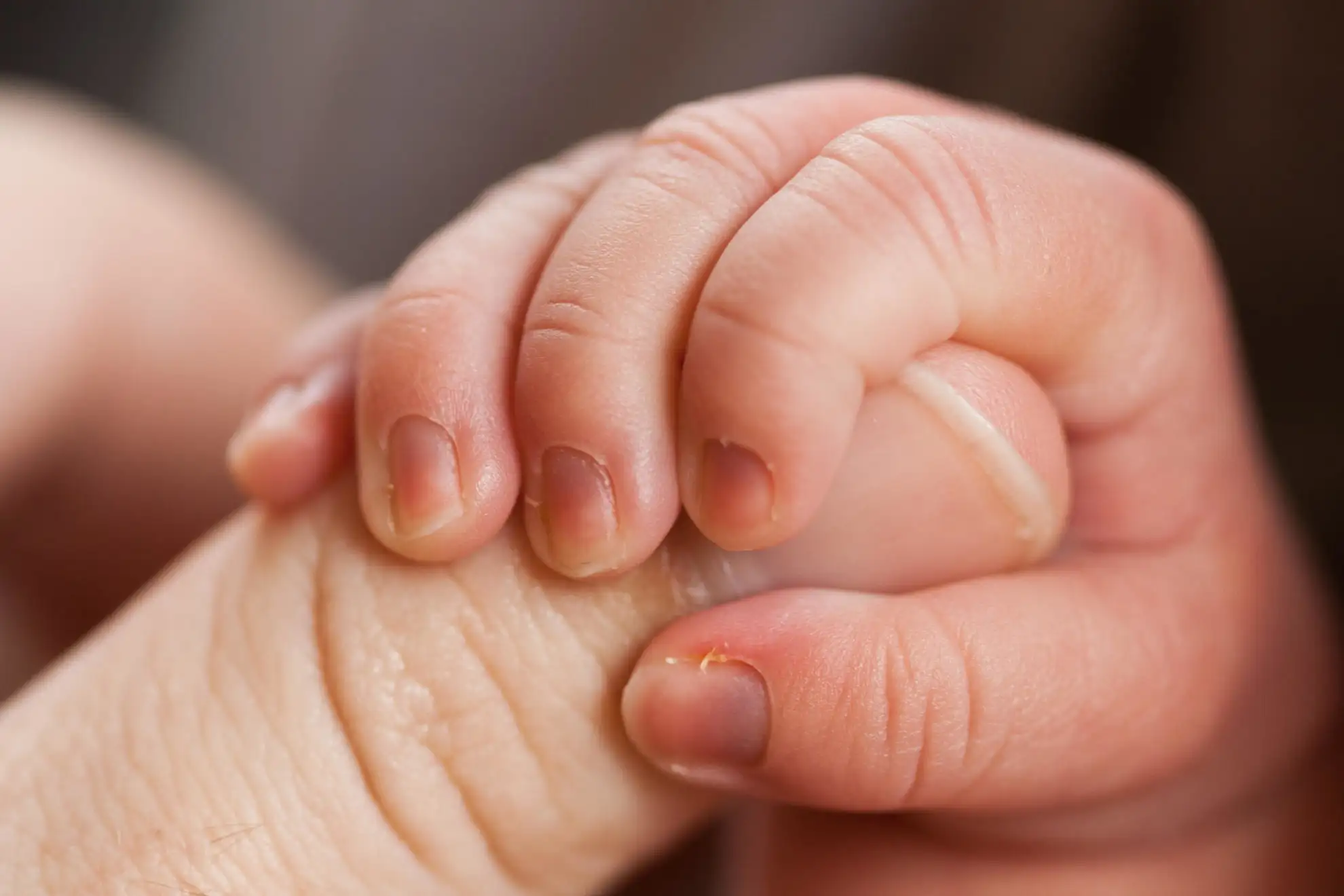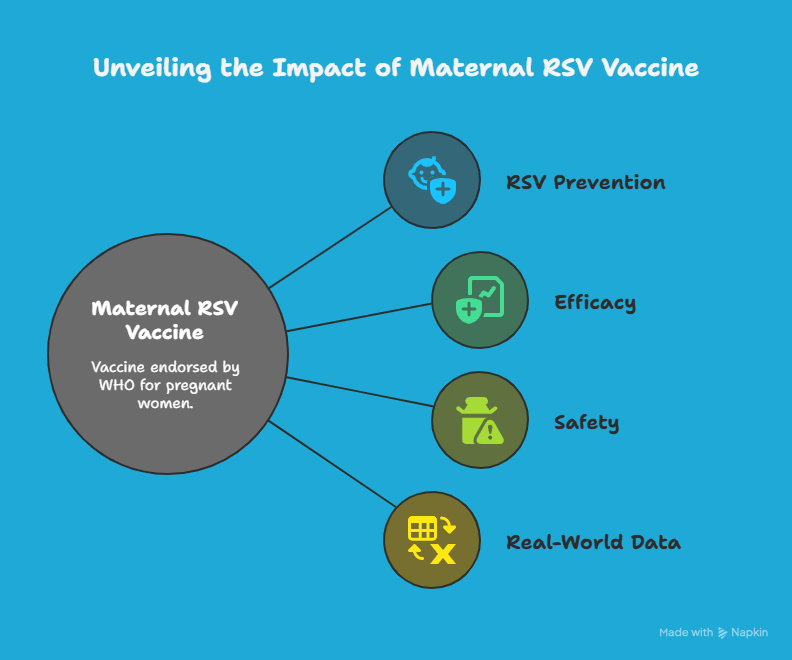Protecting Newborns Before Birth: WHO Endorses Maternal RSV Vaccine

Every year, thousands of newborn lives are at risk from a virus most people have barely heard of. Respiratory Syncytial Virus, or RSV, is the leading cause of serious lower respiratory tract infections in infants. For babies under six months, the risk is especially high, and in low- and middle-income countries, access to timely care can mean the difference between life and death.
In May 2025, the World Health Organization (WHO) published a landmark position paper recommending a new maternal vaccine that offers real hope. The vaccine, RSVpreF, has been prequalified by WHO and is endorsed as a safe and effective tool for protecting infants from RSV in the critical first months of life. For the first time, mothers can help shield their babies from RSV while still pregnant.
The Hidden Toll of RSV
RSV is far more common than many people realize. Nearly every child gets infected by their second birthday, and for most, it causes nothing more than a cold. But for some infants, particularly those under six months old, it can lead to severe conditions like bronchiolitis and pneumonia. In 2019 alone, RSV was linked to over 100,000 deaths in children under five, with almost half occurring in the first five months of life.

What makes RSV particularly dangerous is how silently it strikes. Most deaths happen outside hospitals, especially in areas where access to healthcare is limited. In these settings, even basic treatment like oxygen support may not be available in time. The virus also contributes to a high number of hospital admissions, often overwhelming pediatric units during peak seasons.
Why Vaccinating Pregnant Women Works
The idea of vaccinating mothers to protect their babies isn’t new. It has worked well with diseases like tetanus and influenza. In the case of RSV, this strategy is especially effective because infants receive antibodies through the placenta during pregnancy. These antibodies act as a temporary but powerful shield after birth.
The RSVpreF vaccine targets the virus’s fusion (F) protein, which is key to how RSV infects the body. Scientists discovered that locking this protein into a specific shape, known as the “pre-fusion” state, helps the immune system produce stronger and more effective antibodies. This breakthrough made it possible to develop a vaccine that is both safe and highly effective for use in pregnancy.
How Well Does the Vaccine Work?
The Phase 3 clinical trial for RSVpreF involved over 7,000 pregnant participants from 18 countries. The results were impressive. Babies born to vaccinated mothers had 82 percent protection against severe RSV-related illness requiring medical care at three months of age. Even at six months, protection remained strong at 70 percent.
The vaccine also reduced RSV-related hospitalizations by more than half. These benefits were consistent across both high-income countries and lower-income settings. Importantly, the vaccine provided protection to babies born prematurely, although their antibody levels were somewhat lower compared to full-term infants.
Is the Vaccine Safe?
Safety has been a top concern, especially because of earlier RSV vaccine efforts in the 1960s that had unintended effects. This time, scientists were cautious and thorough. The RSVpreF vaccine was well tolerated in the trials. Some mothers reported pain at the injection site, muscle aches, or headaches, but most symptoms were mild and temporary.
There was a slightly higher number of preterm births in the vaccine group compared to the placebo group, but the difference was not statistically significant. Most preterm births occurred weeks after vaccination and involved late preterm deliveries, which carry lower risks. Further analysis showed that this imbalance was more pronounced in a few countries, suggesting local factors may have played a role. This finding is being further examined to understand country-specific variations.
Among infants, the rates of adverse effects were similar whether their mothers received the vaccine or not. Serious complications were rare in both groups, and no unexpected safety concerns were reported.
Real-World Evidence from the First Rollout
Beyond the clinical trials, early data from countries like Argentina and the United Kingdom is encouraging. In Argentina, the vaccine reduced RSV-related hospitalizations by more than 70 percent during its first year of use. In the UK, effectiveness was nearly 73 percent for babies whose mothers were vaccinated at least two weeks before delivery.
These real-world results confirm what the studies suggested: maternal vaccination can significantly reduce the risk of severe RSV in infants.
What This Means for Global Health
The WHO’s endorsement of RSVpreF is a major milestone. It adds a powerful new tool to the fight against early childhood illness and death. For countries with limited health resources, maternal vaccination could help prevent hospital overcrowding and reduce the burden on families and health systems.
This is particularly important as many nations continue recovering from the disruptions of the COVID-19 pandemic. The RSV vaccine protects infants before they are exposed to the world’s dangers, especially during their most fragile days.
Looking ahead, WHO plans to issue guidance on RSV immunization for older adults, who also face risks from the virus. But for now, the focus is clear: vaccinating mothers is one of the best ways to protect their newborns.
With continued investment and global cooperation, this breakthrough could save tens of thousands of young lives every year. And it all begins before a baby even takes their first breath.
